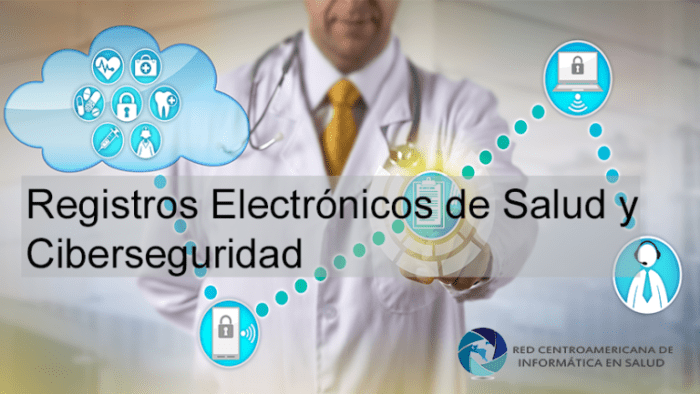How Electronic Health Records Are Changing Patient Care
Exploring the transformative impact of Electronic Health Records (EHRs) on patient care sets the stage for a captivating journey into the realm of modern healthcare. With a focus on innovation and efficiency, this topic delves into the ways EHRs are reshaping the landscape of healthcare delivery.
Detailing the seamless integration of EHRs into patient care processes and their role in enhancing communication between healthcare professionals provides a comprehensive understanding of the topic.
Importance of Electronic Health Records (EHRs)

Electronic Health Records (EHRs) play a crucial role in modern healthcare by digitizing patient information and making it easily accessible to healthcare providers. This shift from paper-based records to electronic systems has revolutionized patient care in numerous ways.
Easier Access to Patient Information
- Healthcare providers can quickly retrieve patient records, including medical history, medications, test results, and treatment plans, leading to more informed decision-making.
- Emergency room visits and consultations become more efficient as doctors have immediate access to critical information, reducing the risk of errors or delays in treatment.
Improved Coordination of Care
- EHRs enable seamless communication between healthcare professionals across different specialties and settings, ensuring that all providers involved in a patient's care are informed and can collaborate effectively.
- Patients benefit from coordinated care plans that are tailored to their specific needs, resulting in better outcomes and a more personalized approach to treatment.
Enhanced Patient Engagement
- Patients can access their own health records online, empowering them to take an active role in managing their health and making informed decisions about their care.
- Through secure messaging and telehealth options, patients can communicate with their healthcare providers more easily, leading to improved engagement and adherence to treatment plans.
Integration of EHRs in Patient Care

Electronic Health Records (EHRs) play a crucial role in seamlessly integrating patient care processes, revolutionizing the way healthcare is delivered.
Enhancing Communication Between Healthcare Professionals
One of the key benefits of EHRs is their ability to enhance communication between healthcare professionals. By having access to a patient's complete medical history, treatment plans, and test results in one centralized system, doctors, nurses, and other caregivers can collaborate more effectively and make well-informed decisions.
Impact on Treatment Accuracy and Efficiency
EHRs have significantly improved treatment accuracy and efficiency by reducing the chances of errors in medication administration, diagnosis, and treatment planning. With real-time updates and alerts, healthcare providers can avoid duplicate tests, track patient progress, and ensure timely interventions, ultimately leading to better outcomes for patients.
Improving Patient Safety with EHRs

Electronic Health Records (EHRs) play a crucial role in enhancing patient safety by providing healthcare providers with accurate and up-to-date information about a patient's medical history, medications, allergies, and test results. This comprehensive overview helps in reducing medical errors and improving patient outcomes
Features of EHRs that Reduce Medical Errors
- Medication Management: EHRs allow healthcare providers to electronically prescribe medications, check for drug interactions, and ensure accurate dosages, reducing the risk of medication errors.
- Decision Support Tools: EHRs provide clinical decision support tools that alert healthcare providers about potential issues such as drug allergies, duplicate tests, or abnormal results, helping in timely interventions.
- Standardized Documentation: EHRs promote standardized documentation practices, ensuring that all healthcare providers have access to the same information, reducing miscommunication and errors in treatment plans.
Examples of Improved Patient Outcomes through Safety Measures
- Reduced Adverse Drug Events: EHRs have significantly reduced the occurrence of adverse drug events by flagging potential interactions, allergies, and ensuring accurate medication administration.
- Enhanced Care Coordination: EHRs facilitate better coordination among healthcare providers by providing a centralized platform for sharing patient information, leading to improved care transitions and reduced errors in treatment.
- Early Detection of Health Issues: EHRs enable healthcare providers to track and monitor patient data over time, allowing for early detection of health issues, prompt interventions, and improved health outcomes.
Challenges and Concerns in Adopting EHRs
Implementing Electronic Health Records (EHRs) in healthcare settings comes with its own set of challenges and concerns that need to be addressed for successful adoption.
Common Challenges Faced by Healthcare Providers
- Lack of interoperability between different EHR systems, leading to difficulties in sharing patient information seamlessly.
- Initial costs associated with implementing EHR systems, including training staff and purchasing the necessary technology.
- Resistance from healthcare professionals who are used to traditional paper-based systems and may be hesitant to switch to digital records.
- Potential disruption to workflow during the transition phase, affecting productivity and patient care.
Privacy and Security Concerns Related to EHRs
- The risk of data breaches and unauthorized access to sensitive patient information stored in electronic systems.
- Concerns about the misuse of patient data for commercial purposes or by malicious entities.
- Potential loss of data integrity or accuracy due to system vulnerabilities or human errors.
- The challenge of ensuring compliance with data protection regulations and maintaining patient confidentiality.
Strategies to Address Challenges and Ensure Successful EHR Adoption
- Investing in robust cybersecurity measures to protect EHR systems from cyber threats and unauthorized access.
- Providing comprehensive training and support to healthcare staff to facilitate a smooth transition to EHRs and ensure proficiency in using the technology.
- Promoting interoperability standards to enable seamless data exchange between different EHR platforms and healthcare providers.
- Engaging stakeholders, including patients, in the implementation process to address concerns and gain buy-in for EHR adoption.
Last Recap
In conclusion, the evolution of Electronic Health Records presents a compelling narrative of improved patient safety, enhanced treatment accuracy, and efficient healthcare delivery. As EHRs continue to revolutionize patient care, the future holds promising advancements in healthcare technology and patient outcomes.
Clarifying Questions
How do EHRs benefit patients and healthcare providers?
EHRs enhance coordination of care, improve patient outcomes, and streamline healthcare processes for providers.
What are the common challenges faced in adopting EHR systems?
Healthcare providers often encounter issues related to system integration, training, and data security during EHR implementation.
How do EHRs contribute to patient safety?
EHRs reduce medical errors, improve medication management, and enhance the accuracy of treatment plans, ultimately leading to better patient safety.




